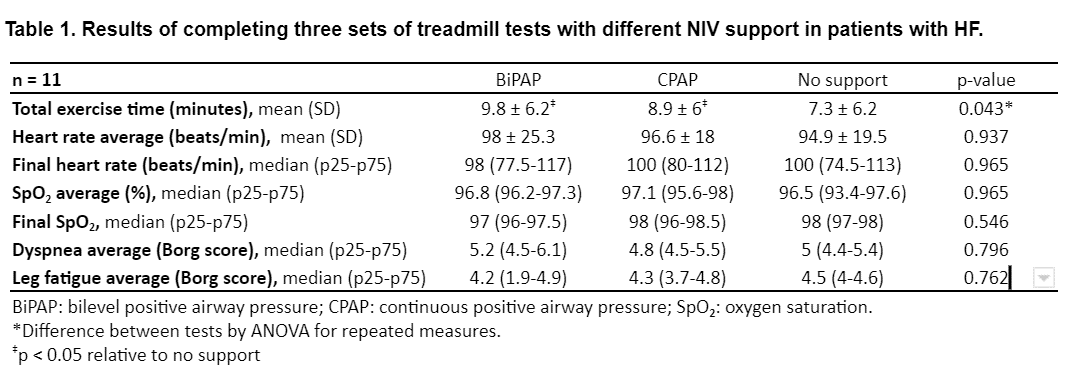Abstract
Background: Ventilatory inefficiency is a key determinant of exercise intolerance in patients with respiratory diseases. However, the effects of non-invasive ventilation (NIV) in patients with heart failure (HF) remains unclear.
Objective: This study aimed to investigate the effects of two NIV devices during exercise performance compared to no support in patients with HF.
Methods: A double blind randomized cross-over trial was performed. 3 constant work-rate treadmill tests at 80% peak of maximal cardiopulmonary exercise test under 3 NIV support: continuous positive airway pressure (CPAP), bilevel positive airway pressure (BiPAP) and no support. The setting of the pressures: BiPAP (IPAP 10cmH2O/EPAP 5cmH2O) and CPAP (5cmH2O). Time, heart rate (HR), oxygen saturation (SpO2), dyspnea and fatigue were measured. 1.4 minutes was MCID (O'Donnel.1999).
Results: Eleven patients (67±9 years, 8 males), with body mass index 28.5±3.6 Kg/m2, and left ventricular ejection fraction 30.3±7% were included. Exercise time improved significantly and clinically by BiPAP (9.8±6.2 min) and CPAP (8.9±6 min) compared to no support (7.3±6.2 min) (p<0.05). BiPAP showed higher but non-significant exercise time compared to CPAP (p=0.430). 
Conclusion: In patients with HF the use of NIV devices, especially BiPAP, improved the exercise tolerance with the same physiologic demand.